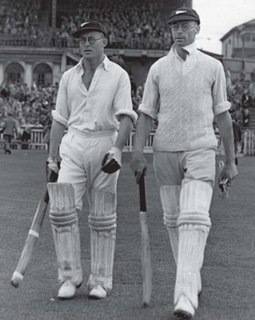A Quote by Johann Wolfgang von Goethe
Devote each day to the object then in time and every evening will find something done.
Related Quotes
If you live in a baboon troop in the Serengeti, you only have to work three hours a day for your calories, and predators don't mess with you much. What that means is you've got nine hours of free time every day to devote to generating psychological stress toward other animals in your troop. So the baboon is a wonderful model for living well enough and long enough to pay the price for all the social-stressor nonsense that they create for each other. They're just like us: They're not getting done in by predators and famines, they're getting done in by each other.
My grandmother took me to church on Sunday all day long, every Sunday into the night. Then Monday evening was the missionary meeting. Tuesday evening was usher board meeting. Wednesday evening was prayer meeting. Thursday evening was visit the sick. Friday evening was choir practice. I mean, and at all those gatherings, we sang.
Some people believe that to find happiness, you should live each day of your life as if it's your last because that way you will appreciate every single moment you have. Other people believe that you should live each day as if it's your first because then every day can be the beginning of a new journey.
Write all the time. I believe in writing every day, at least a thousand words a day. We have a strange idea about writing: that it can be done, and done well, without a great deal of effort. Dancers practice every day, musicians practice every day, even when they are at the peak of their careers – especially then. Somehow, we don’t take writing as seriously. But writing – writing wonderfully – takes just as much dedication.
You may have to declare your forgiveness a hundred times the first day and the second day, but the third day will be less and each day after, until one day you will realize that you have forgiven completely. And then one day you will pray for his wholeness and give him over to me so that my love will burn from his life every vestige of corruption.
But what else can we do when we're so weak? We invest hours each day, months each year, years each lifetime in something over which we have no control; it is any wonder then, that we are reduced to creating ingenious but bizarre liturgies designed to give us the illusion that we are powerful after all, just as every other primitive community has done when faced with a deep and apparently impenetrable mystery?
I highly recommend setting aside pockets of time during each day for solitude. You might have only five or ten minutes, but be alone and uninterrupted. And then sometime each week devote an extended time - at least one hour - to reconnect with your soul. How and when you do it is a very personal thing, but plan it because solitude doesn't happen on its own. Make it a priority in your life.
He who cannot find time to consult his Bible will one day find he has time to be sick; he who has no time to pray must find time to die; he who can find no time to reflect is most likely to find time to sin; he who cannot find time for repentance will find an eternity in which repentance will be of no avail; he who cannot find time to work for others may find an eternity in which to suffer for himself.
Why should I wish to see God better than this day? I see something of God each hour of the twenty-four, and each moment then, In the faces of men and women I see God, and in my own face in the glass; I find letters from God dropped in the street, and every one is signed by God's name, And I leave them where they are, for I know that others will punctually come forever and ever.
For almost every novel I've written, I've read the daily newspaper of the time almost as if it were my current subscription. For 'Two Moons,' which was set in 1877, I think I read just about every day of the 'Washington Evening Star' for that year. For 'Henry and Clara,' I read the 'Albany Evening Journal' of the time.






































